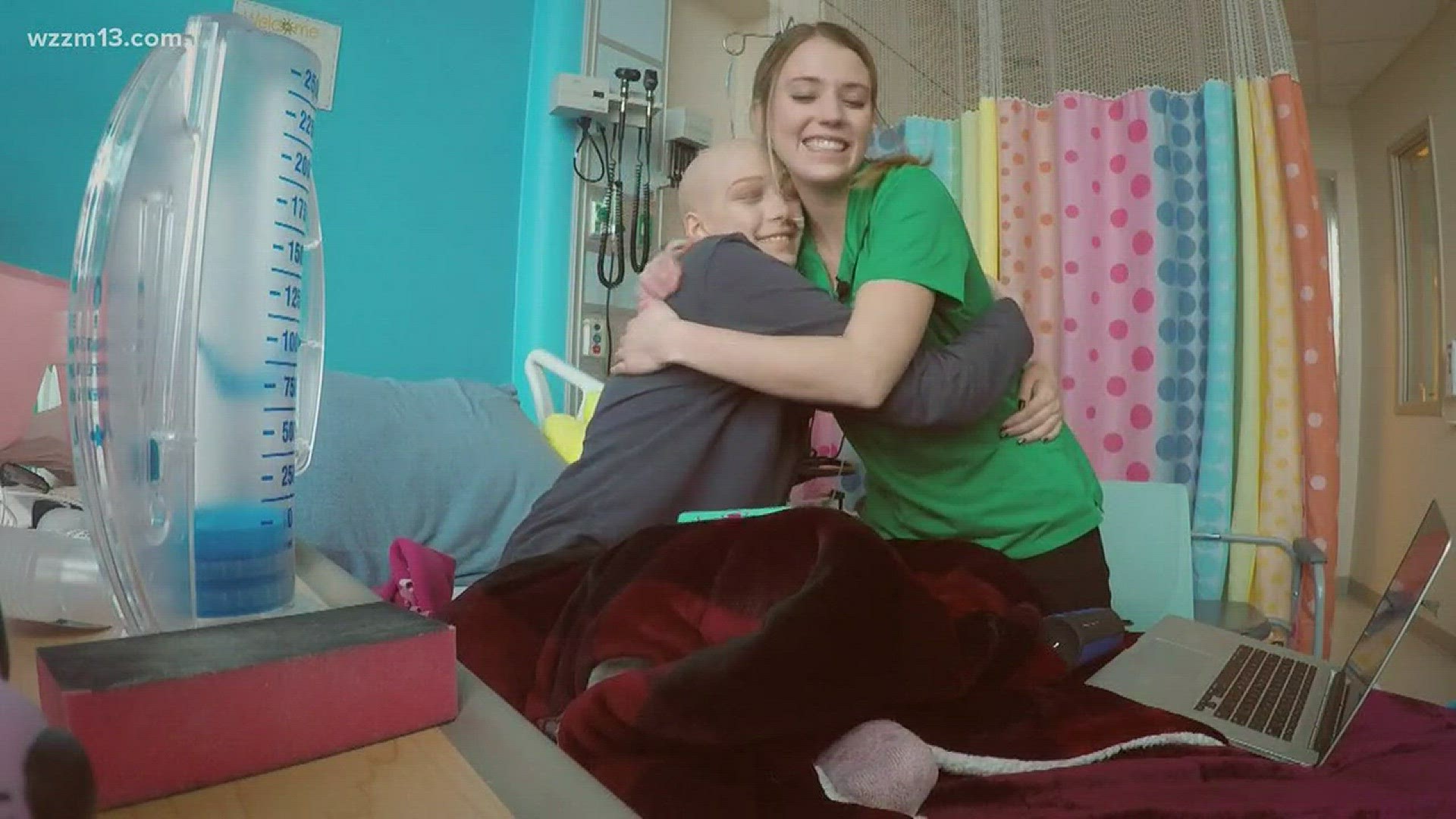Music has been used as a therapeutic tool for centuries. Researchers say music has been shown to affect many areas of the brain, including the regions involved with movement, sensation, cognition and emotion.
Other studies show that a dose of music therapy can result in physiological changes that include improved respiration, lowered blood pressure, improved cardiac output, reduced heart rate and relaxed muscle tension.
Colleges and universities have gradually been adding music therapy as part of their curriculum, beginning with Michigan State University in 1944.
The first major professional organization for music therapists was formed in 1950. It was known as the National Association for Music Therapy (NAMT).
The American Music Therapy Association (AMTA) was formed after merging with the NAMT in 1998, allowing for the technique to continue to make in-roads and develop.
"Music therapy is an evidence-based field," said Bridget Sova, who is the Edward and June Prein Endowed Pediatric Music Therapist at Helen DeVos Children's Hospital in Grand Rapids, Mich.. "Whenever I go out to visit with patients, I grab my guitar."
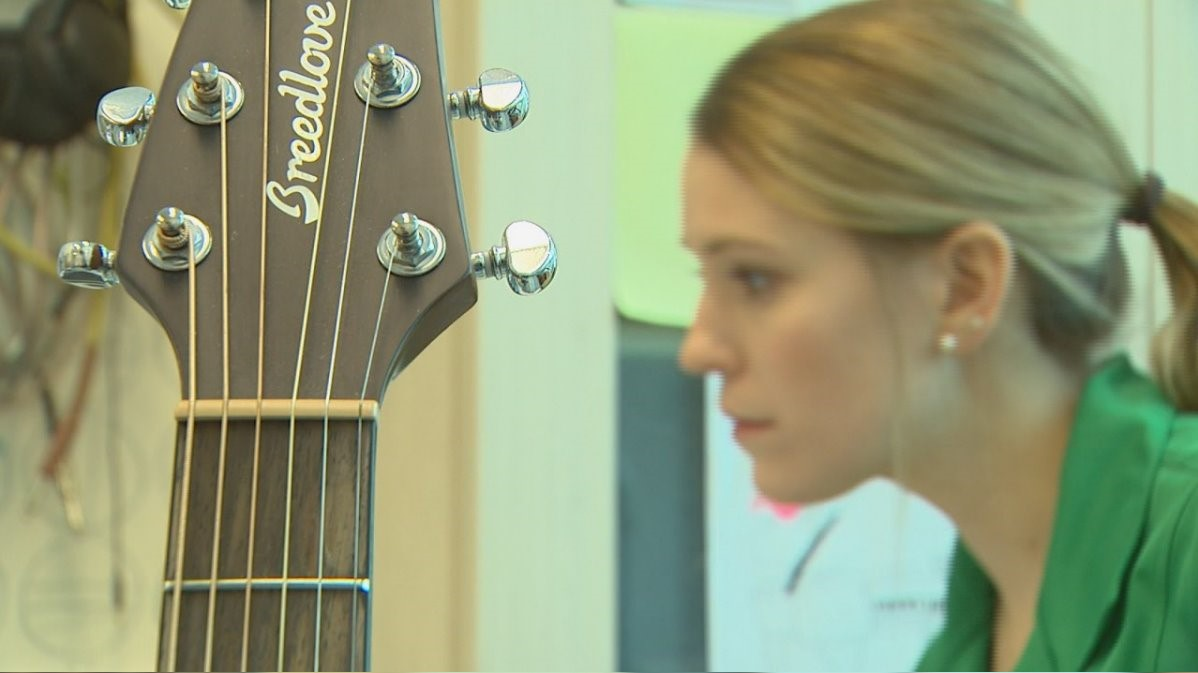
Sova came to Helen DeVos Children's Hospital in March of 2015, and was tasked immediately to build the music therapy program from the ground up. Within the last three years, she has been able to create momentum with the thanks to the support of donations.
"Music is one of those innate motivators for us as people," said Bridget. "It has a way of drawing things out of us that without it maybe wouldn't be as easy to accomplish."
Sova graduated from Ohio University with a Bachelor's degree in music and music therapy in 2014. She then began an internship at Cincinnati Children's Hospital Medical Center, where one of her colleagues introduced her to an interesting technique that was more engaging for the patients.
"I have been making music out of patients' heartbeats," said Bridget. "I chop a stethoscope a couple inches from the chest tube and place a lapel mic inside. The other side plugs into my computer and I am able to record heartbeats."
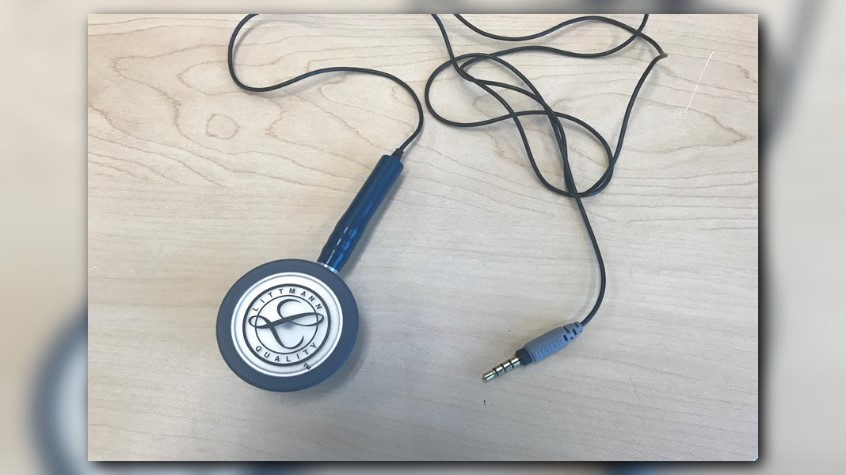
Bridget said when she began the technique, it was more for terminally ill patients. The idea was to record patients' heartbeats before they passed away so their friends and loved one could listen to it as a source of comfort and remembrance.
"Some families that I've done this with will say that they have the recording on their phone and listen to it everyday," said Bridget. "Other families have told me they haven't been able to listen to it yet.
"It's something they can go back and listen to when they're ready."
She quickly came to the realization that this technique should also be used for patients who aren't facing terminal illness. She says recording a patient's heartbeat, then building their favorite song around beat of the heart, then allowing the patient to hear the music, can go a long way to raising spirits of patients who are facing concerns about their ongoing health issues.
"Every family and patient who's gong through something hard should be able to have this cool technique as something to remember what they went through," added Bridget.
One of the patients admitted to Helen DeVos Children's Hospital seemed like she could use a healthy dose of music therapy and Bridget's heartbeat technique.
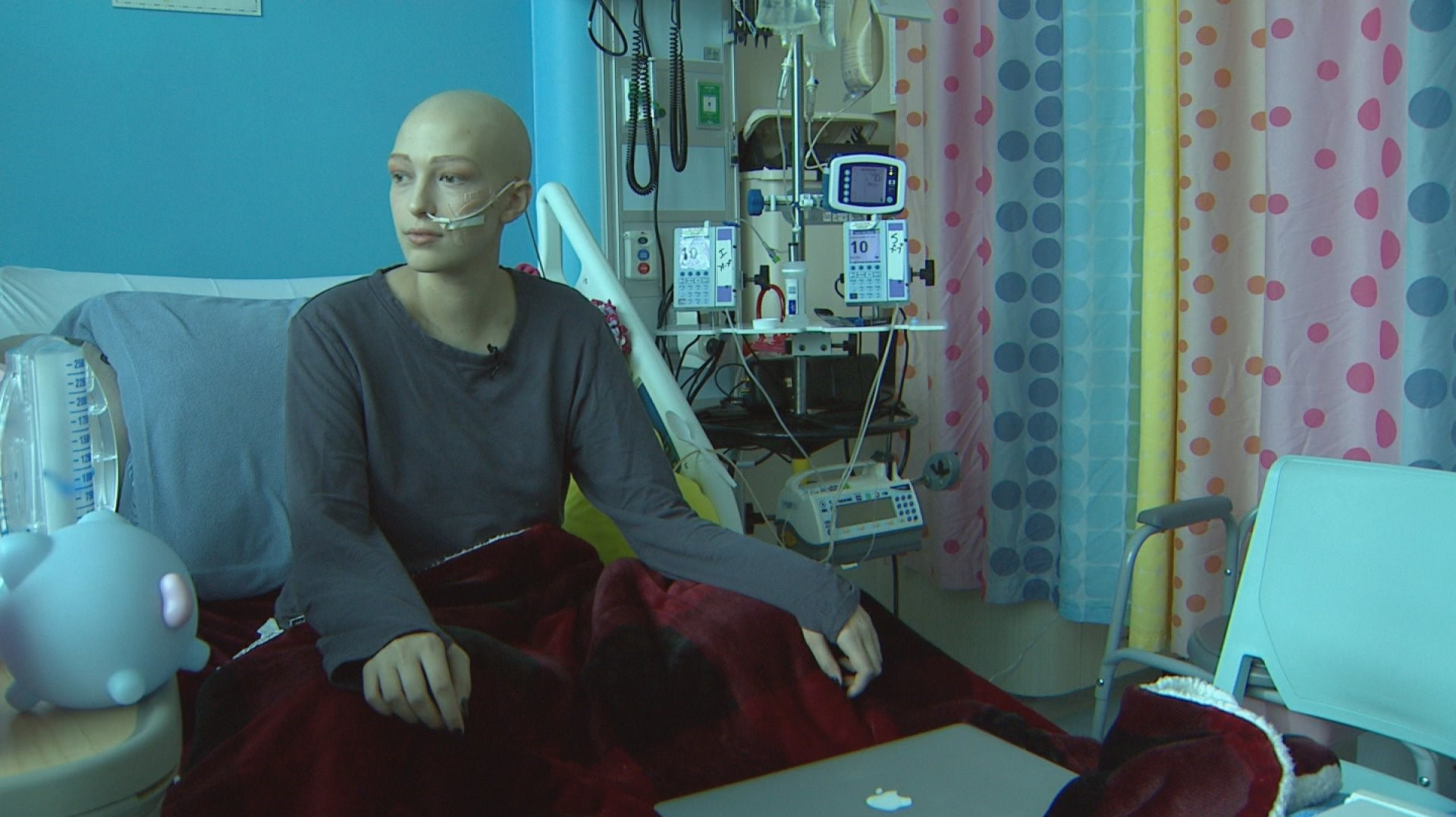
In May 2017, Evelyn Schwartz was diagnosed with Aveolar Rhabdomyosarcoma, which is a rare form of soft tissue cancer found mostly in children.
There are only 350 cases of this form of cancer introduced each year in the United States.
"There was six weeks where [my family and I] thought I had an upper respiratory issue, like pneumonia," said Evelyn, 14, who is a high school freshman in Petoskey, Mich. "I was taken to urgent care where doctors took x-rays, which showed that my lungs were partially collapsed, and a tumor was discovered.
"I legally died twice. We had no idea what it was or how fast it was growing or what damage it had done."
Evelyn was flown via a medical helicopter from Petoskey to Grand Rapids, where she has been undergoing cancer treatments ever since.
Bridget heard about Evelyn and her case and wanted to visit her to see if she'd be interested in music therapy. Bridget grabbed her special stethoscope-turned-microphone, and her laptop computer and made her way to Evelyn's room.
"Evelyn is super funny and is always in good spirits even when she's feeling really down," said Bridget. "She's a special girl."
The two sat in Evelyn's hospital room and chatted, before Bridget shared the idea of producing a song to the beat of Evelyn's heart.
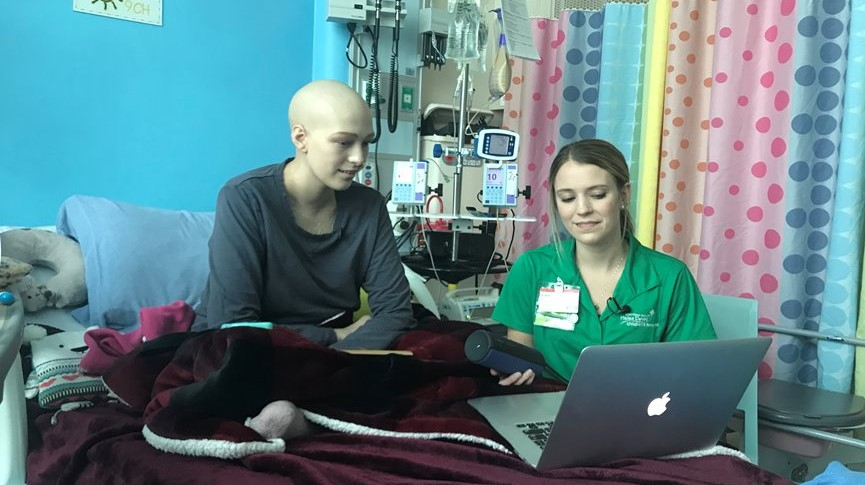
"What song would you like me to put to your heartbeat," Bridget asked Evelyn.
"I want to do 'Champion' from the new 'Fall Out Boy' album," said Evelyn. "The main lines are, 'if I can live through this, I can do anything. So, if i can live through this cancer, then i probably can live through anything."
Bridget then fired up her laptop, began recording, and asked Evelyn to place the stethoscope over her heart. Bridget needed only 10-15 seconds of the actual heartbeat recorded because she planned to loop it when she worked on the actual song.
Once Evelyn's heartbeat was captured, Bridget said she'd go back to her office to put the music to it then come back later that day to let Evelyn listen to it.
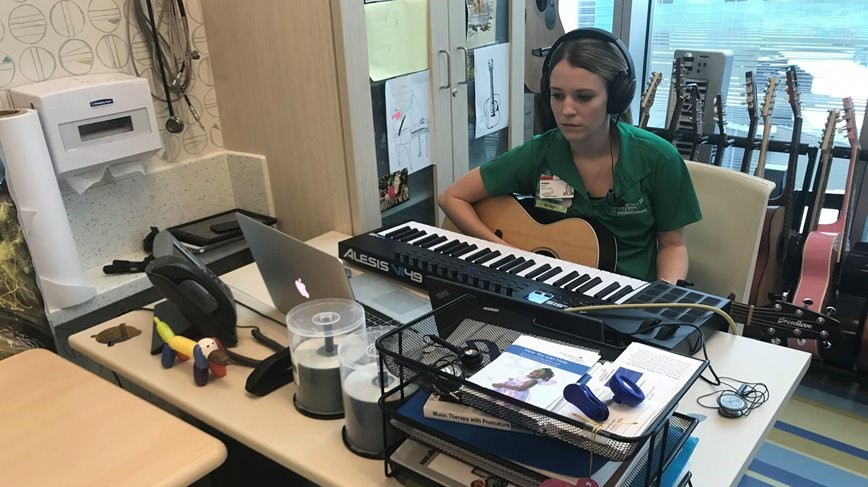
First, Bridget listened to the actual song by Fall Out Boy to become familiar to it, then grabbed her guitar and started playing the melody to the beat of Evelyn's heart. Once that audio mix was completed, she got a keyboard and began playing the harmony of the song then mixed that together with the guitar and Evelyn's heartbeat.
The entire process from start to finish took about an hour.
Bridget then took the recording back up to Evelyn's room so Evelyn could hear it.
"Your heartbeat was like the perfect tempo," Bridget told Evelyn. "Your heartbeat matched up perfectly to the song."
"Champion" by Bridget Sova, hosted on Dropbox
After listening to the song, Evelyn became emotional.
"Whenever I hear that song, it makes me feel powerful," said Evelyn. "Having my own heartbeat as a part of the song makes me feel even more powerful.
"This exceeded all my expectations. That is my heartbeat, and that's [Fall Out Boy's] song. I'm in the song! The song is me!"
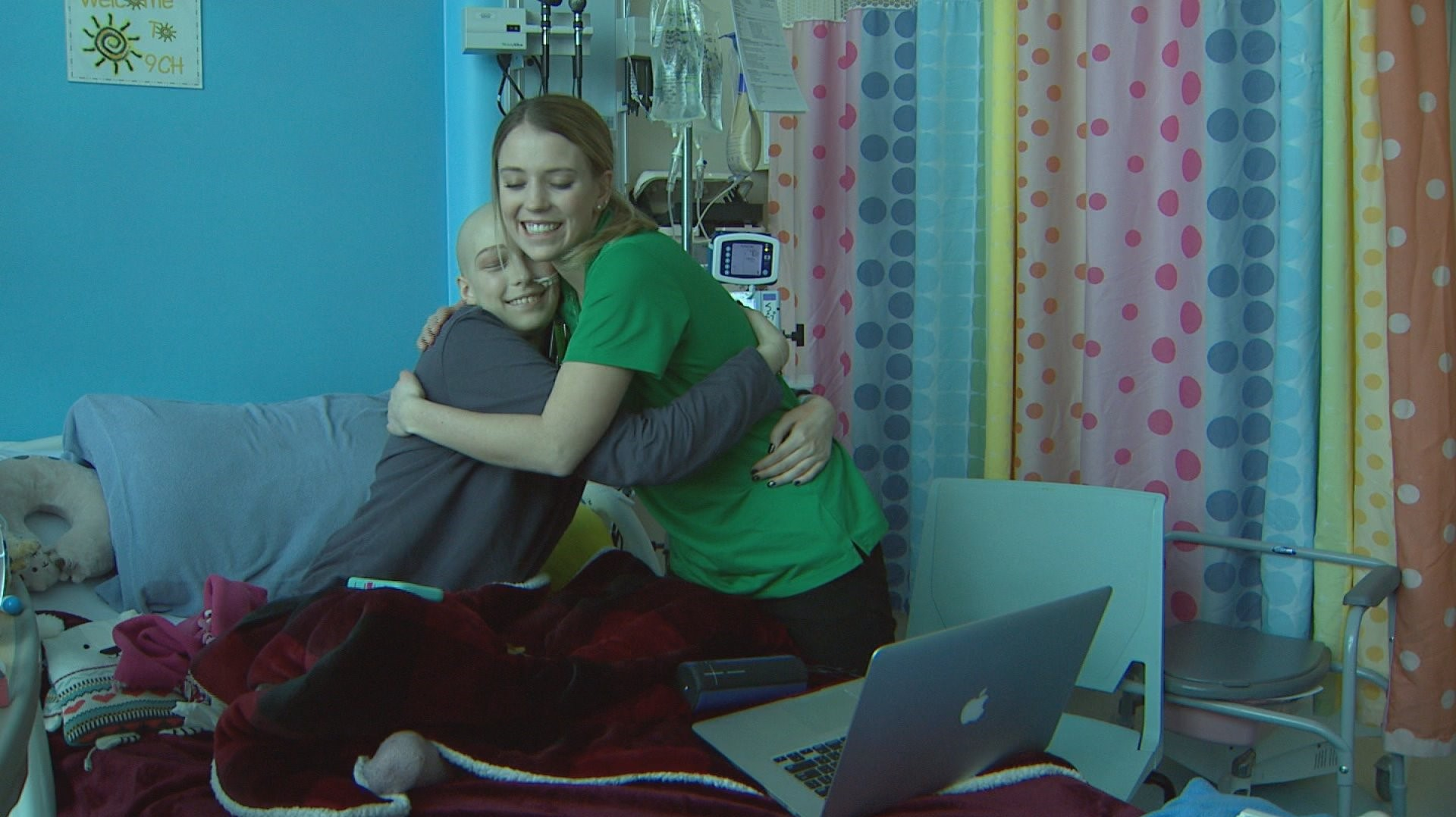
Being able to create heartbeat recordings, or perform other music therapy techniques for patients, is why Bridget Sova knows music therapy is her true calling in life.
"It's just so nice to be able to give a little something back to a patient that's been through a lot," said Bridget. "When Evelyn is feeling up to it, she and I hope to sing together and add the lyrics into the recording.
"That will make [the recording] even more special than it is now."
Evelyn Schwartz has a long road ahead in her fight against Aveolar Rhabdomyosarcoma, but she has discovered a nice distraction, and a new friendship with Bridget, that's going a long way in helping her find meaning and purpose in what otherwise may be an extremely stressful and difficult journey.
If you're interested in learning more about the music therapy program at Helen DeVos Children's Hospital, you're encouraged to click here.
►Make it easy to keep up to date with more stories like this. Download the WZZM 13 app now.
If you know of a good story that would make for a great feature for "Our Michigan Life", send an email to WZZM 13's Brent Ashcroft at life@wzzm13.com.

